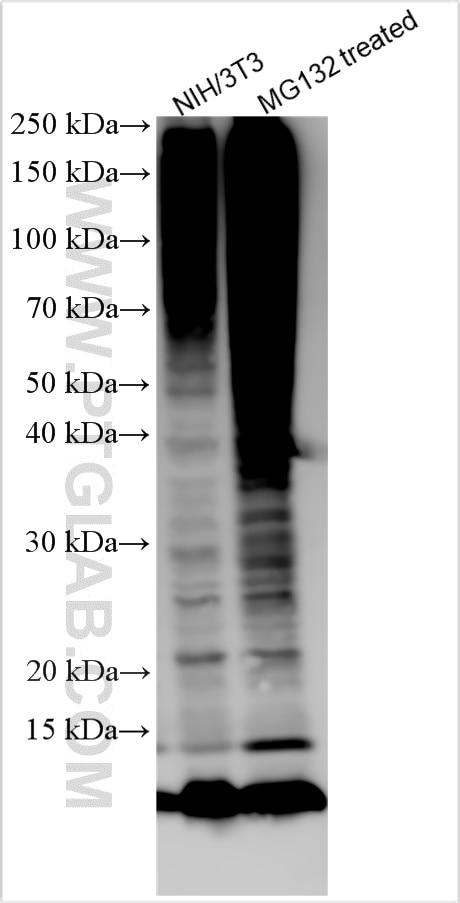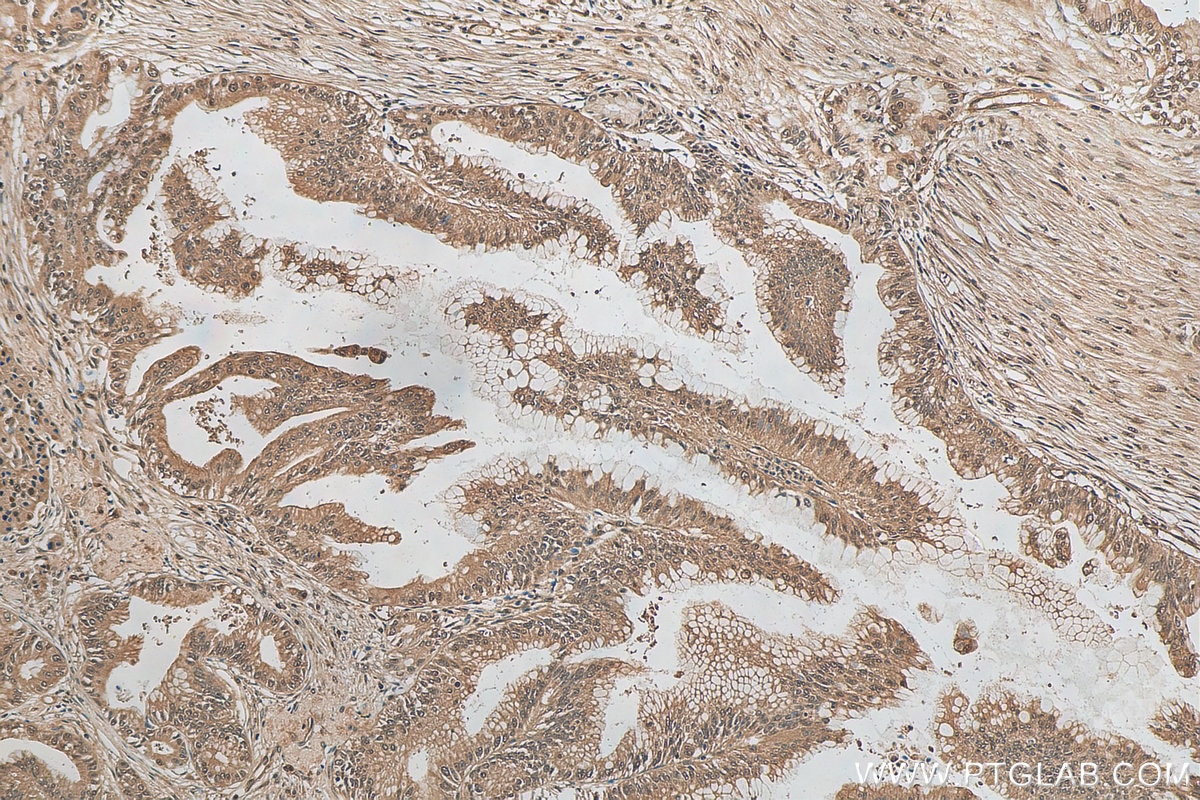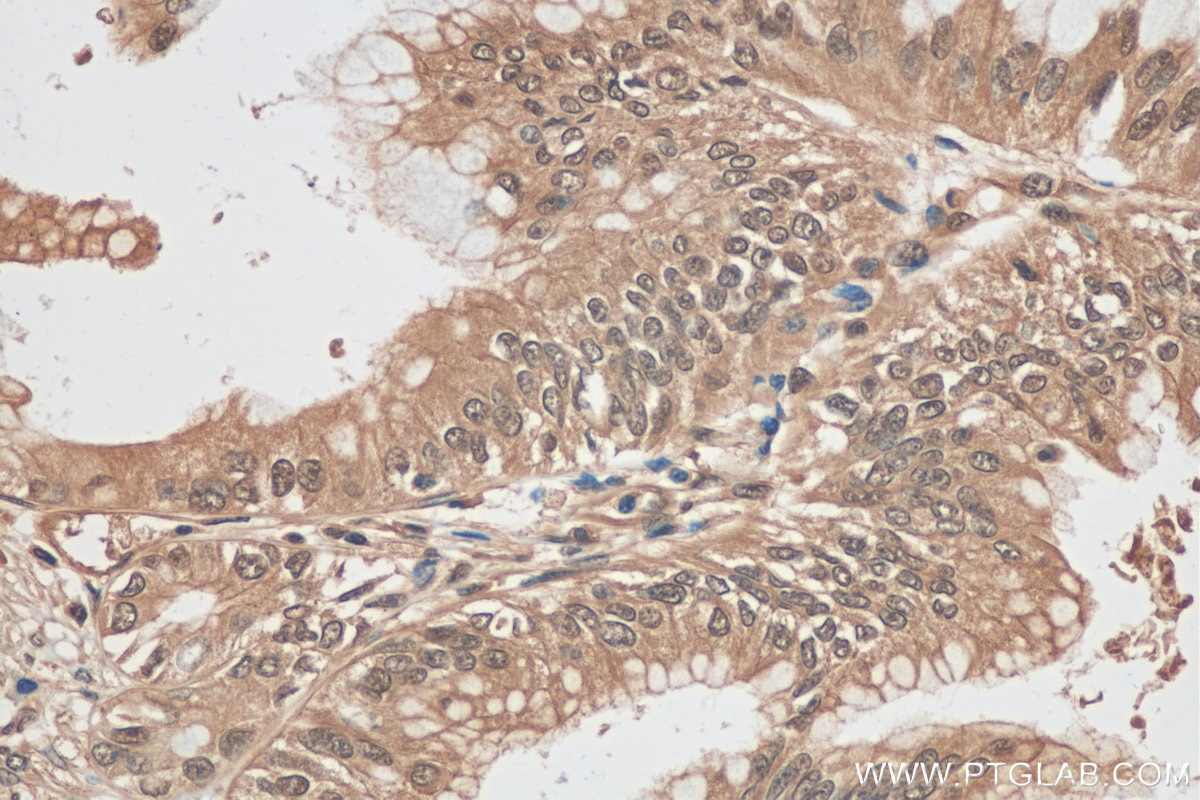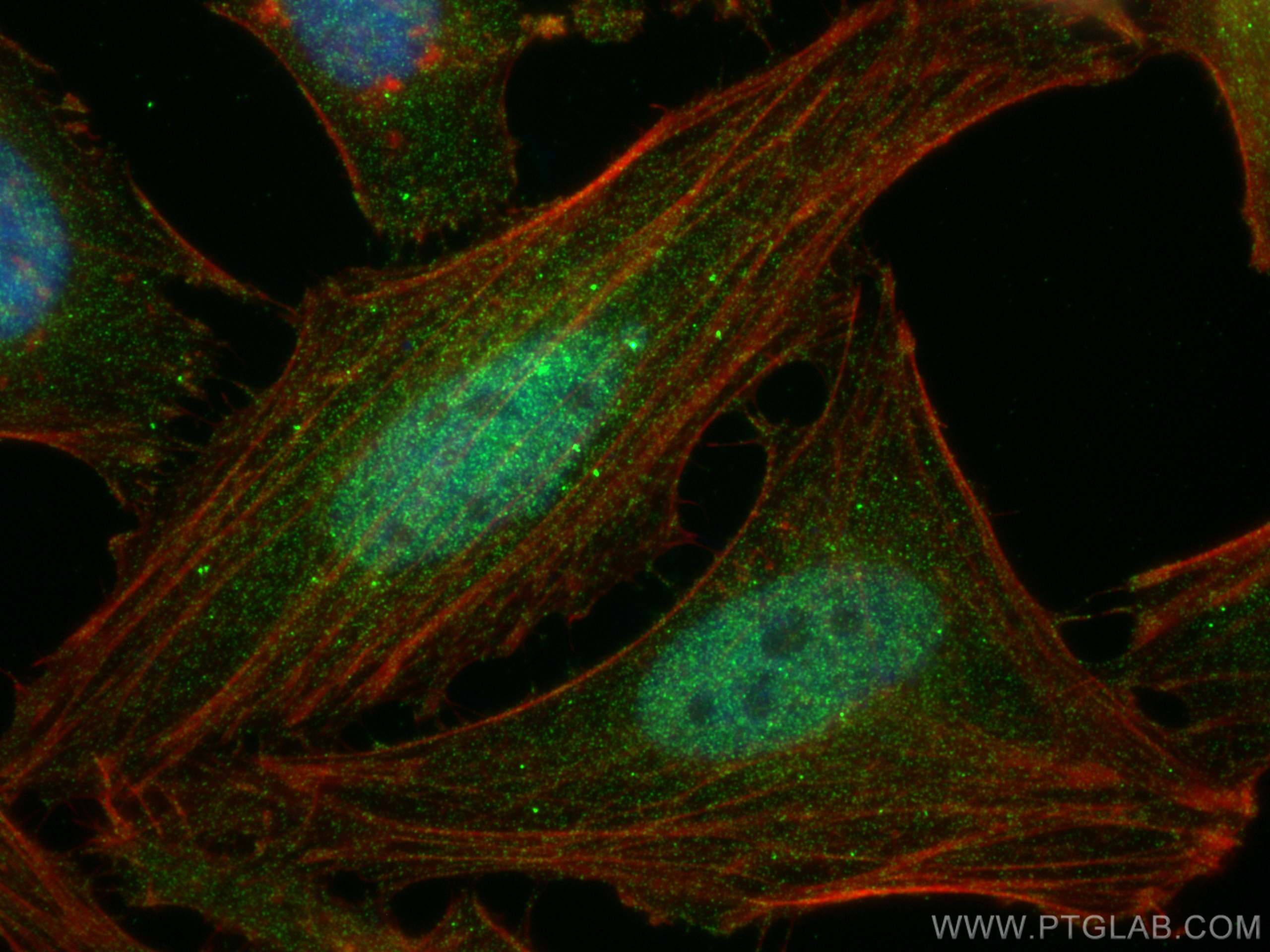Anticorps Recombinant de lapin anti-ubiquitin
ubiquitin Recombinant Antibody for IF, IHC, WB, ELISA
Hôte / Isotype
Lapin / IgG
Réactivité testée
chien, Humain, levure, rat, souris, Hamster
Applications
WB, IP, IHC, IF, ELISA
Conjugaison
Non conjugué
CloneNo.
6H6
N° de cat : 80992-1-RR
Synonymes
Galerie de données de validation
Applications testées
| Résultats positifs en WB | cellules NIH/3T3, cellules NIH/3T3 traitées au MG132 |
| Résultats positifs en IHC | tissu de cancer du pancréas humain, il est suggéré de démasquer l'antigène avec un tampon de TE buffer pH 9.0; (*) À défaut, 'le démasquage de l'antigène peut être 'effectué avec un tampon citrate pH 6,0. |
| Résultats positifs en IF | cellules HeLa, |
Dilution recommandée
| Application | Dilution |
|---|---|
| Western Blot (WB) | WB : 1:10000-1:100000 |
| Immunohistochimie (IHC) | IHC : 1:50-1:500 |
| Immunofluorescence (IF) | IF : 1:500-1:2000 |
| It is recommended that this reagent should be titrated in each testing system to obtain optimal results. | |
| Sample-dependent, check data in validation data gallery | |
Applications publiées
| WB | See 2 publications below |
| IP | See 1 publications below |
Informations sur le produit
80992-1-RR cible ubiquitin dans les applications de WB, IP, IHC, IF, ELISA et montre une réactivité avec des échantillons chien, Humain, levure, rat, souris, Hamster
| Réactivité | chien, Humain, levure, rat, souris, Hamster |
| Réactivité citée | Humain |
| Hôte / Isotype | Lapin / IgG |
| Clonalité | Recombinant |
| Type | Anticorps |
| Immunogène | ubiquitin Protéine recombinante Ag0260 |
| Nom complet | ubiquitin B |
| Numéro d’acquisition GenBank | BC000379 |
| Symbole du gène | UBB |
| Identification du gène (NCBI) | 7314 |
| Conjugaison | Non conjugué |
| Forme | Liquide |
| Méthode de purification | Purification par protéine A |
| Tampon de stockage | PBS avec azoture de sodium à 0,02 % et glycérol à 50 % pH 7,3 |
| Conditions de stockage | Stocker à -20°C. Stable pendant un an après l'expédition. L'aliquotage n'est pas nécessaire pour le stockage à -20oC Les 20ul contiennent 0,1% de BSA. |
Informations générales
Ubiquitin B (UBB) is a member of ubiquitin family, one of the most conserved proteins known. Ubiquitin B is required for ATP-dependent, non-lysosomal intracellular protein degradation of abnormal proteins and normal proteins with a rapid turnover. Ubiquitin B is covalently bound to proteins to be degraded, and presumably labels these proteins for degradation. Ubiquitin also binds to histone H2A in actively transcribed regions but does not cause histone H2A degradation, suggesting that ubiquitin is also involved in regulation of gene expression.When polyubiquitin is free (unanchored-polyubiquitin), it also has distinct roles, such as in activation of protein kinases, and in signaling. This gene consists of three direct repeats of the ubiquitin coding sequence with no spacer sequence. Consequently, the protein is expressed as a polyubiquitin precursor with a final amino acid after the last repeat. Aberrant form of this protein has been noticed in patients with Alzheimer's and Down syndrome. Interestingly ubiquitin also becomes covalently bonded to many types of pathological inclusions which appear to be resistant to normal degradation.
Protocole
| Product Specific Protocols | |
|---|---|
| WB protocol for ubiquitin antibody 80992-1-RR | Download protocol |
| IHC protocol for ubiquitin antibody 80992-1-RR | Download protocol |
| IF protocol for ubiquitin antibody 80992-1-RR | Download protocol |
| Standard Protocols | |
|---|---|
| Click here to view our Standard Protocols |
Publications
| Species | Application | Title |
|---|---|---|
Cell Signal Repurposing a plant alkaloid homoharringtonine targets insulinoma associated-1 in N-Myc-activated neuroblastoma | ||
Clin Transl Oncol LncRNA XXYLT1-AS2 promotes tumor progression via autophagy inhibition through ubiquitinated degradation of TFEB in hepatocellular carcinoma | ||





